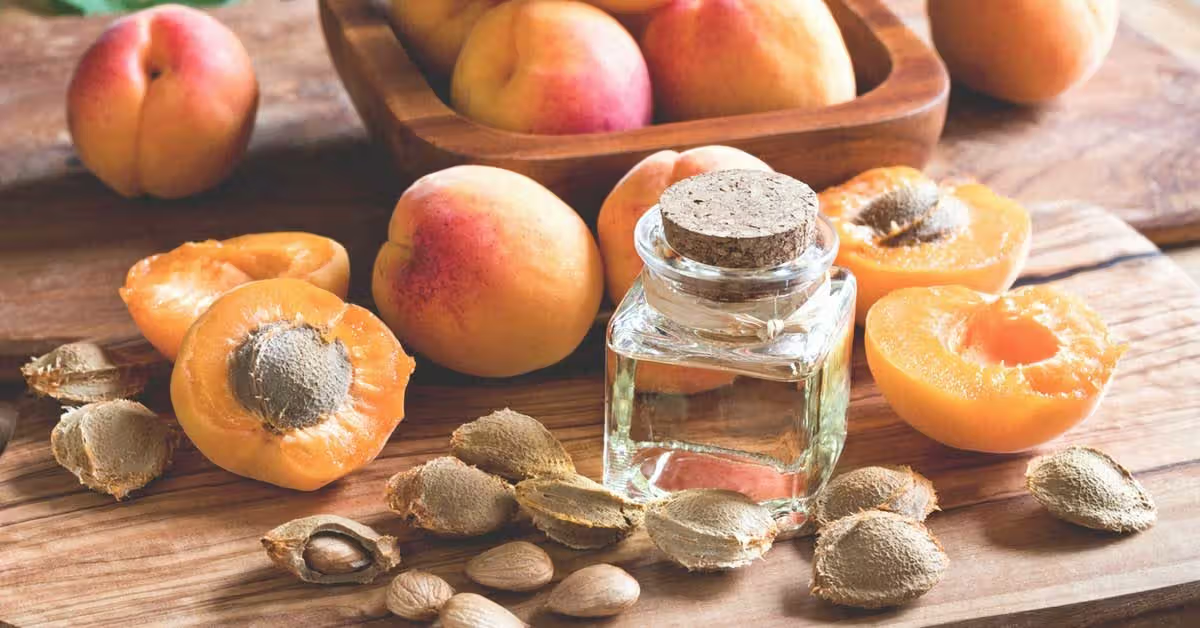HEALTH AND FITNESS
Unlocking Wellness: The Hidden Benefits of Apricot Seeds

Apricot seeds may be small, but they hold a wealth of health benefits. Used in traditional medicine for centuries, these nutrient-rich kernels are gaining modern attention for their potential to support immunity and overall well-being. While their compounds may offer promising effects, it’s essential to approach their consumption with awareness. As we explore their nutritional value, potential uses, and safety considerations, we aim to separate fact from fiction. Keep reading to uncover the truth about apricot seeds and their role in a healthy lifestyle.
Table of Contents
Exploring the Nutritional Profile of Apricot Kernels
Apricot kernels are a rich source of essential nutrients, including protein, fiber, healthy fats, and monounsaturated fats, which are linked to heart health. These nutrients support overall well-being, digestion, muscle maintenance, and cholesterol regulation. They also contain essential fatty acids, which contribute to cardiovascular health.
Apricot kernels also contain vitamins E and B, which play crucial roles in energy metabolism and neurological health. Minerals like potassium, magnesium, and iron contribute to bone health, blood pressure regulation, and red blood cell production. Antioxidants, such as vitamin B17, are also present in apricot seeds, which may have cancer-fighting properties. It is important to consume apricot seeds with caution, as their benefits come with potential risks if not consumed properly.
Apricot Seeds and Cancer: Understanding the Controversy
The controversy surrounding apricot seeds and cancer treatment revolves around amygdalin, a compound believed to target and kill cancer cells. However, the scientific community is divided on the topic due to a lack of definitive research and potential toxicity when metabolized into cyanide.
While some anecdotes and preliminary studies show promise, the lack of large-scale, peer-reviewed research raises questions about efficacy and safety. Regulatory bodies like the FDA warn against the consumption of apricot seeds for cancer treatment, emphasizing the dangers of cyanide poisoning. It’s crucial for patients and consumers to be aware of these risks and engage in conversations with healthcare professionals before considering apricot seeds as a cancer-fighting tool.
The Role of Vitamin B17 in Health and Disease Prevention
Vitamin B17, also known as amygdalin or laetrile, is a controversial topic in apricot seeds due to its potential role in health and disease prevention. Proponents argue that it targets and destroys cancer cells, potentially offering a safeguard against the disease. Most health professionals and nutrition experts do not consider it an essential nutrient and warn that it can convert to cyanide, posing serious health risks.
Despite this, the conversation around vitamin B17 reflects a broader interest in phytonutrients and their impact on health. Further research is needed to responsibly explore the potential benefits of B17 and similar compounds, while preserving its fascination for those interested in alternative health practices and plant healing power.
Incorporating Apricot Seeds into Your Diet Safely and Effectively
Adding apricot to your diet requires caution due to the balance between potential benefits and risks. It’s best to start with small amounts and seek professional advice to avoid issues related to amygdalin content. Choosing reputable sources when looking for apricot seeds for sale ensures quality and safety.
For creative use, apricot seeds can be ground into smoothies, sprinkled on salads, or added to baked goods—though heat may alter their nutrients. Staying informed on the latest research helps you make safe, educated dietary choices as new insights emerge.
Overall, apricot seeds offer a combination of nutritional benefits and potential complexities. The healthful properties present in these kernels suggest that they could be a valuable addition to a balanced diet. Due diligence is necessary to navigate the controversy surrounding their medicinal use and ensure their safe consumption. As research progresses, perhaps more clarity will emerge, empowering us to make informed decisions on the incorporation of apricot seeds into our health regimen.
-

 GENERAL2 months ago
GENERAL2 months agoUncovering the World of кинокрадко: The Dark Side of Film Piracy
-

 GENERAL1 month ago
GENERAL1 month agoUnveiling the Art of преводсч: How Translators Bridge Language Barriers
-

 YOGA1 year ago
YOGA1 year ago4 Person Yoga Poses for Beginners
-

 GENERAL3 weeks ago
GENERAL3 weeks agoChristofle – For Those Who Dream of Family Heirloom Silver


























